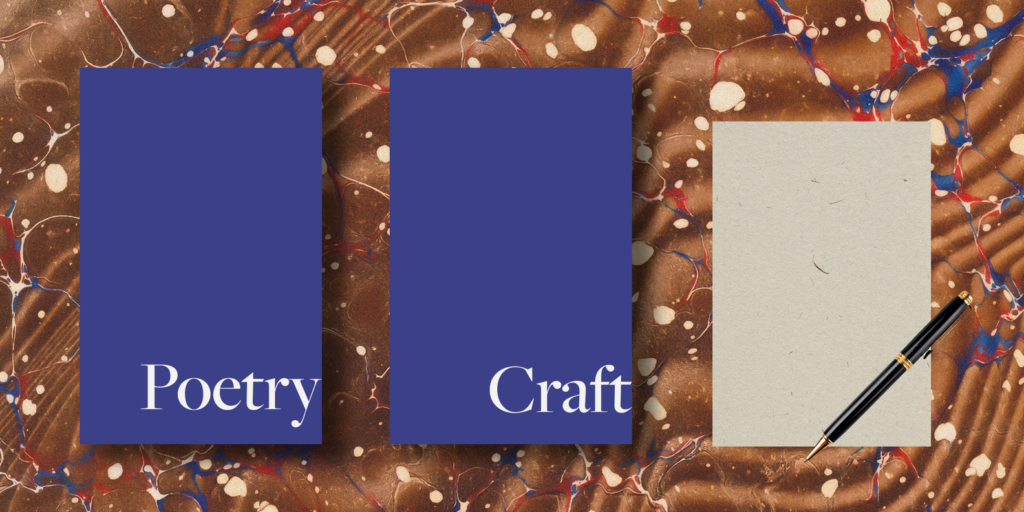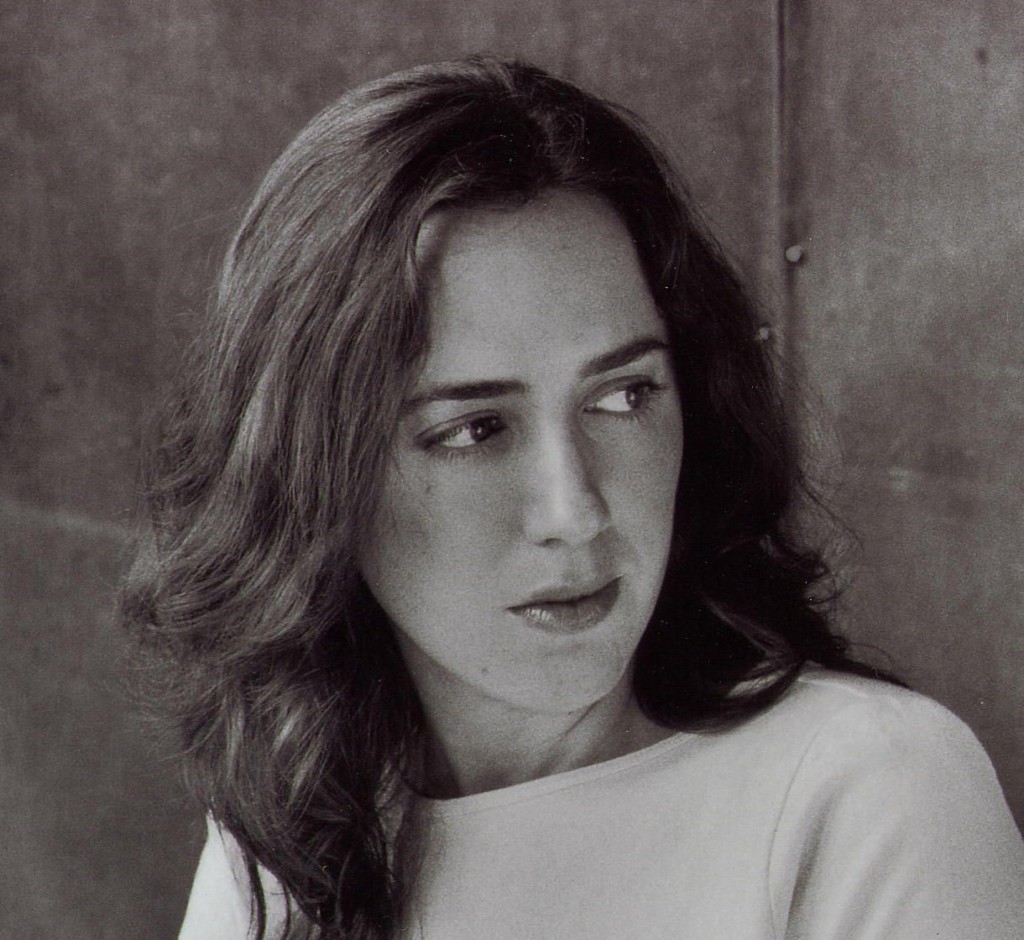In this series, we interview our tutors about poetry craft. Here’s Eve Grubin discussing her favourite poetic device with examples from other writers’ and her own work.

1. What is your favourite poetic device and why does it resonate with you?
My favourite poetic device is the white space on the page. This is not a traditional literary device, but it is a powerful tool for poets. I love how it holds all the meanings that can’t be put into words. Here are some of my favourite quotes from poets that allude to this ‘poetic device’:
I am attracted to ellipsis, to the unsaid, to suggestion, to eloquent,
deliberate silence. The unsaid, for me, exerts great power: often I
wish an entire poem could be made in this vocabulary.
– Louise Glück, From her essay ‘Disruption, Hesitation, Silence’,
in her book of essays ‘Proofs and Theories’
Heard melodies are sweet but those unheard / Are sweeter.
– John Keats, From the poem ‘Ode on a Grecian Urn’
Saying what can’t be said, period, is what I’m interested in. What
literally can’t be said.
– Jean Valentine, From an interview with Catherine Barnett, ‘Little Light on
the Road: An Informal Primer on Reading Jean Valentine, in Six Brief Sections’ in
‘Jean Valentine: This World-Company, ed. by Kazim Ali and John Hoppenthaler’
What is left unexpressed can affect the reader perhaps even more
strongly than what has been explicitly stated, precisely because it is
has not been already taken into conscious account.
– Jane Hirshfield, ‘Nine Gates: Entering the Mind of Poetry’
Nothing / is the force that renovates / the World
– Emily Dickinson, ‘Poems’, edited by Franklin, these lines are from
the poem which begins ‘By homely gifts and hindered words’, Fr 1611,
vol 3, p. 1413, lines 4–5.
[D]on’t make the mistake of thinking the white sheet is nothing.
It’s nothing for your novelist, your journalist, your blogger. For
those folk it’s a tabula rasa, a giving surface. For a poet it’s half of
everything. If you don’t know how to use it, you are writing prose.
– Glyn Maxwell, From his book ‘On Poetry’
2. Can you share a poem or excerpt by another writer where your favourite poetic device is used particularly effectively?
While all poems work with the spaces around the words to some extent, some do so more than others. Here is a poem by Israeli poet Dan Pagis (translated by Stephen Mitchell) which is radical in its uses of white space:
Written in Pencil in a Sealed Railway-Car
Here in this carload
I am Eve
with Abel my son
If you see my older son
Cain son of Adam
tell him that I
3. Can you share one of your own poems where you have adopted this device, and why you used it for that particular poem?
I often notice that my poems become more dynamic, generating energy, when I remove words from them. For instance, when editing my poem ‘Afterwards, Eve’ something told me that I should cut off the last line mid-sentence. I would not have been able to articulate the reason, but I instinctively felt that the white space after the poem ended transmitted more information than language could have provided. I am sure that I was unconsciously influenced by the Dan Pagis poem quoted above. Here is the seven-line poem, ‘Afterwards, Eve’:
I can’t remember
what this brush between my legs is for.
I used to know. And the purpose
of these breasts, of this
tongue, this palm.
It had something to do with.
Now I want.
– Eve Grubin, ‘Afterwards Eve’ taken from ‘Morning Prayer’.
4. When should poets use this device or a device at all?
I don’t suggest using this ‘device’ while writing a poem but rather when editing the poem after many of the words have been put onto the page. When writing, a poet might, in the back of their mind, be aware of the silences and gaps on the page but it’s not necessary to be too conscious of this tool just yet. In the editing process, poets can begin to remove words, phrases, and lines that are superfluous or take energy away from the poem. Poets might consider, in some cases, removing language that states an idea too directly. As a poet pares words away, often, meanings emerge that were dull or dormant when unneeded words filled the page. I’ll end with this quote from Mary Oliver which I often think of while editing a poem:
Modesty will give you vigour. It keeps open the gates of prayer, through which the mystery of the
poem streams on its search for form. Just occasionally, take something you have written, that you
rather like, that you have felt an even immodest pleasure over, and throw it away .
– From May Oliver’s ‘Rules for the Dance: A Handbook for Writing and Reading Metrical Verse.’

Eve Grubin is the author of Morning Prayer (Sheep Meadow Press) and Grief Dialogue and The House of Our First Loving (both from Rack Press). Her next book of poems Boat of Letters will be published by Four Way Books. Her essays have appeared in various magazines and anthologies including, The Veil: Women Writers on Its History Lore and Politics (U of CA Press). Eve was the programs director at the Poetry Society of America and has taught at The New School, and the City College of New York. She is a lecturer at New York University London. www.evegrubin.com.
Eve Grubin will be teaching a two part course with us this term starting on 30 October: ‘And I Will Tell About It:’ The Poetry of Sharon Olds. This course will dive into poems spanning Olds’s career and include opportunities to take inspiration from her work for your own writing.
Add your Reply
You must be logged in to post a comment.